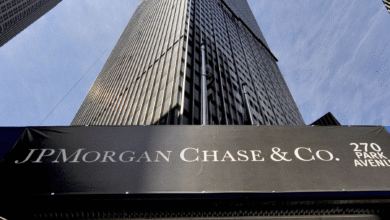Bitcoin Staking: Babylon Unveils 10B BABY Token Airdrop

Bitcoin staking is revolutionizing the way cryptocurrency enthusiasts engage with the Bitcoin network. As decentralized finance (DeFi) continues to gain momentum, innovative protocols like the Babylon Foundation are at the forefront, offering enticing opportunities such as the 10 billion BABY token airdrop for early supporters of their staking platform. By leveraging Bitcoin’s robust proof-of-work (PoW) security to create a native proof-of-stake (PoS) experience, users can stake their Bitcoin directly without relying on intermediaries or complex processes like token wrapping. This breakthrough not only enhances liquidity for Bitcoin holders but also empowers them to actively participate in securing PoS networks and decentralized applications (dApps). The integration of such features positions Bitcoin staking as a pivotal force within the evolving landscape of cryptocurrency and DeFi.
In the realm of cryptocurrency, participating in staking activities such as those associated with Bitcoin can significantly enhance user engagement and investment potential. Terms like yield generation and governance token allocation are gaining popularity as projects like Babylon Foundation’s initiative bring new definitions of wealth creation to the forefront. Their recent announcement of a significant airdrop tied to their ecosystem serves to entice users to explore decentralized finance through the lens of Bitcoin, a traditionally proof-of-work asset. By merging the principles of proof-of-stake with Bitcoin’s foundational integrity, the Babylon approach exemplifies a harmonious blend of innovation and security within the blockchain space. This convergence not only paves the way for broader adoption but also highlights the multifaceted benefits of integrating diverse protocols with Bitcoin’s robust framework.
Understanding Bitcoin Staking and Its Benefits
Bitcoin staking is a relatively new and innovative concept within the decentralized finance (DeFi) ecosystem, bridging traditional Bitcoin (BTC) networks with proof-of-stake (PoS) methodologies. Unlike traditional mining that relies heavily on proof-of-work (PoW), staking allows users to participate in the network’s integrity while earning rewards simply by holding and locking their tokens. The introduction of staking enhances Bitcoin’s utility, allowing holders to earn a passive income while contributing to network security. This is particularly significant as the DeFi landscape matures and seeks to incorporate Bitcoin’s formidable security features.
The Babylon Foundation’s staking protocol is a prime example of this evolutionary step. It not only incentivizes early adopters with a generous 10 billion BABY token airdrop but also provides a streamlined way for Bitcoin holders to engage in staking without relinquishing custody of their assets. Users can stake their Bitcoin directly on the Babylon platform, thereby reinforcing both the integrity of the PoS chains supported by Babylon and their own investment. This dual benefit is likely to attract a wider audience to Bitcoin staking, fostering a more inclusive DeFi community.
The Role of Babylon Foundation in DeFi Innovations
The Babylon Foundation is at the forefront of enhancing decentralized finance through its innovative use of Bitcoin’s security. By utilizing a unique staking mechanism that allows Bitcoin holders to stake without intermediaries, Babylon is setting a standard for integrating Bitcoin into the PoS model. This approach not only increases the overall security of PoS networks but also makes the staking process accessible for users who may have previously felt overwhelmed by traditional staking paradigms. Through initiatives like the BABY token airdrop, the foundation is fostering a community-oriented environment that encourages participation and investment.
Moreover, Babylon’s strategy reflects a significant shift in how Bitcoin can participate in the broader blockchain ecosystem. With a capped supply of 10 billion BABY tokens, the project demonstrates a clear governance and incentive framework aimed at maximizing user involvement and network participation. This inclusive approach not only solidifies Babylon’s position within the DeFi space but also highlights the essential role that early users play in supporting such transformations. By rewarding these foundational stakeholders, Babylon is laying down the roots for a thriving decentralized finance ecosystem that is more resilient and integrated.
Exploring the BABY Token and Its Distribution Mechanics
The BABY token is tailored to reinforce the governance and transactional framework of the Babylon network while serving as a reward mechanism for participation. With 10 billion tokens set for distribution, the tokenomics of BABY are carefully calculated to ensure sustainable growth within the DeFi ecosystem. A breakdown of the token distribution reveals that significant portions are reserved for community rewards, ecosystem development, and ongoing research, illustrating Babylon’s commitment to longevity and expansion within the decentralized finance sector.
Additionally, vesting schedules associated with the BABY token aim to promote stability and long-term investment strategies among early adopters and key stakeholders. By implementing multi-year vesting periods, the Babylon Foundation is actively preventing quick sell-offs that could destabilize the market. This well-strategized distribution not only aligns incentives with the project’s development but also fosters trust and collaboration within the community, encouraging users to remain active participants in the network’s growth.
Decentralized Finance: The Future of Bitcoin Staking
Decentralized finance is heralding a new era for Bitcoin by providing innovative solutions that enhance its application and user engagement. Through protocols like Babylon, Bitcoin is no longer limited to a store of value but can actively contribute to decentralized applications and PoS networks. As DeFi continues to evolve, the synergy between Bitcoin’s established security and newer blockchain technologies is becoming increasingly critical for both investors and developers. This represents a significant shift, highlighting how traditional cryptocurrency can adapt to the demands of the modern financial landscape.
The advancements in Bitcoin staking through platforms like the Babylon Foundation illustrate the transformative power of decentralized finance. By allowing Bitcoin holders to engage in staking directly, the protocol not only democratizes access to yield generation but also reinforces the network’s role as a foundational element of DeFi. As more individuals recognize the potential of Bitcoin staking, the entire DeFi landscape will likely experience significant growth, paving the way for new investment opportunities and strategies that leverage the strengths of Bitcoin alongside the dynamism of PoS architectures.
Airdrop Strategies and Community Engagement
The BABY token airdrop initiated by the Babylon Foundation serves as a strategic tool for community engagement and user acquisition. Airdrops are increasingly popular in the cryptocurrency space as they incentivize early involvement and foster a sense of community among users. By distributing a significant quantity of tokens to early backers, Babylon not only rewards existing supporters but also attracts new users eager to participate in the staking ecosystem. This strategy is essential for building a robust foundation for the project, ensuring a diverse and active community.
Moreover, the airdrop acts as a catalyst for broader interest in decentralized finance and Bitcoin staking, as participants will likely share their experiences and insights with their networks. The viral nature of these initiatives can significantly boost visibility for the Babylon platform and the potential uses of BABY tokens. Ultimately, such community-centric strategies not only enhance participation but also contribute to the long-term viability of decentralized finance initiatives, establishing a loyal user base driving the project’s success.
The Importance of Bitcoin’s Security in Staking Mechanisms
One of the most significant innovations introduced by the Babylon Foundation is the ability to leverage Bitcoin’s robust security while engaging in staking. Traditionally, Proof of Stake (PoS) networks have relied on their own inherent security protocols, but by integrating Bitcoin’s established track record and proof-of-work mechanisms, Babylon are enhancing trust and reliability within their ecosystem. This combination ensures that as users participate in staking, they do remain secure even in a fluctuating market.
Incorporating Bitcoin’s unspent transaction outputs (UTXO) model further strengthens the protocol, allowing stakers to maintain custody of their assets while still contributing to network security. This model mitigates risks often associated with centralized exchanges, where users lose custody over their tokens. By enabling a system where Bitcoin holders can engage meaningfully within the staking environment, Babylon is setting a precedent for how Bitcoin’s security can be effectively utilized to bolster decentralized finance initiatives.
Navigating the Future of Decentralized Applications (dApps)
As decentralized applications (dApps) become more prevalent, the need for robust security solutions remains paramount. The Babylon Foundation’s unique approach allows developers to leverage Bitcoin’s reliability while building on PoS architectures. This synergy not only protects the integrity of dApps but creates an ecosystem where innovation flourishes. As more projects look to integrate Bitcoin into their offerings, Babylon is poised to be a leader in this space, showcasing how Bitcoin can effectively adapt and thrive in a rapidly evolving blockchain landscape.
Furthermore, dApps built on the Babylon protocol can harness the power of BABY tokens for governance and operational incentives, further solidifying the interconnection of Bitcoin with other blockchain technologies. This represents a significant opportunity for developers who can utilize Babylon’s framework to build scalable and secure applications without compromising on the foundational principles of Bitcoin. As this trend accelerates, the Babylon model could inspire similar integrations across various blockchain sectors, leading to a richer and more interconnected blockchain ecosystem.
Community Rewards and Token Governance Mechanisms
The governance framework established by the Babylon Foundation is designed to promote active community participation and ensure that token holders have a say in the project’s direction. The allocation of 15% of the BABY token supply to community rewards underscores the foundation’s commitment to decentralization and user empowerment. Through this system, token holders can engage in governance decisions that influence the platform’s future, ensuring that the community’s voice is heard and taken into account.
In addition to direct community involvement, the governance model allows for proposals and voting mechanisms that reflect users’ interests and values. By fostering a collaborative environment, Babylon enhances its legitimacy and encourages long-term investment from its user base. This proactive approach to governance not only retains users but also attracts new participants looking for projects where their contributions and opinions are valued.
Analyzing The Tokenomics of BABY and Its Impact
Analyzing the tokenomics of the BABY token presents a clear picture of its potential impact within the DeFi space. The Babylon Foundation’s meticulous planning regarding token distribution, including community rewards and developmental allocations, positions the BABY token to grow organically with community involvement. By ensuring that a considerable portion of tokens is reserved for users and stakeholders, the foundation builds a strong incentive for participation while also ensuring that a portion of the supply fuels ongoing development.
Moreover, as BABY tokens are utilized throughout the ecosystem for governance and transaction fees, their demand is likely to increase, adding further value for holders. This alignment between supply and utility fosters confidence among investors and creates a sustainable economic model. Ultimately, the careful crafting of BABY’s tokenomics establishes a robust foundation for the Babylon ecosystem and illustrates how thoughtful token design can drive growth within decentralized finance.
Frequently Asked Questions
What is Bitcoin staking and how does it relate to the BABY token?
Bitcoin staking refers to the process where Bitcoin holders can earn rewards by participating in a staking protocol, such as that initiated by the Babylon Foundation with its BABY token. This protocol allows users to stake their Bitcoin directly on the Bitcoin blockchain, enabling them to contribute to the security of proof-of-stake (PoS) networks without losing custody of their assets.
How does the Babylon Foundation’s Bitcoin staking mechanism work?
The Babylon Foundation’s Bitcoin staking mechanism utilizes Bitcoin’s unspent transaction output (UTXO) model, allowing users to stake their Bitcoin while maintaining ownership. This decentralized finance (DeFi) approach supports the security of PoS networks and enables direct participation in staking without intermediaries, harnessing the security of Bitcoin’s proof-of-work (PoW) model.
What are the benefits of participating in Bitcoin staking through Babylon’s protocol?
Participating in Bitcoin staking through Babylon’s protocol offers benefits such as earning rewards in the form of the BABY token, accessing a decentralized finance (DeFi) ecosystem, and contributing to the security of PoS networks while retaining control over Bitcoin assets. Additionally, stakers can benefit from the protocol’s dual staking model that offers an annual inflation rate of 4% in BABY.
What is the significance of the 10 billion BABY token airdrop announced by the Babylon Foundation?
The 10 billion BABY token airdrop is significant as it rewards early supporters of the Babylon Foundation’s Bitcoin-native staking protocol. This airdrop incentivizes participation in the ecosystem, fosters community engagement, and further promotes the use of Bitcoin in decentralized finance (DeFi) applications.
How does the dual staking model work with Bitcoin and BABY token?
In Babylon’s dual staking model, both Bitcoin and BABY token holders can stake their assets and receive rewards. Those who stake Bitcoin can earn BABY tokens, while BABY stakers also benefit from the inflation of BABY tokens. This model encourages participation in the protocol and integrates Bitcoin into the DeFi ecosystem efficiently.
What are the long-term prospects for Bitcoin staking within the Babylon ecosystem?
The long-term prospects for Bitcoin staking within the Babylon ecosystem appear promising due to its innovative approach of integrating Bitcoin’s security into proof-of-stake (PoS) networks. As the protocol develops and matures, it aims to strengthen the interoperability of Bitcoin with other blockchain networks, potentially leading to increased adoption and new use cases in decentralized finance (DeFi).
How can users participate in the airdrop associated with the BABY token?
Users can participate in the BABY token airdrop by becoming early supporters of the Babylon Foundation’s staking protocol. Details for participation typically include signing up for their platform, holding Bitcoin, and staying informed about airdrop eligibility criteria often announced through official channels.
What governance roles does the BABY token provide to its holders?
The BABY token empowers its holders with governance roles within the Babylon ecosystem, allowing them to vote on important decisions related to the protocol’s development, protocol parameters, and funding allocations. This decentralized governance model fosters community involvement and aligns the interests of stakers and the broader ecosystem.
| Key Features | Details |
|---|---|
| Babylon Airdrop | 10B BABY tokens for early backers. |
| Staking Protocol | Leverages Bitcoin’s PoW for PoS networks without intermediaries. |
| Token Utility | BABY token used for governance, transaction fees, and security functions. |
| Total Value Locked (TVL) | $4.26 billion as of April 3, 2025. |
| Dual Staking Model | Bitcoin and BABY stakers receive 4% annual inflation in BABY. |
| Token Distribution | 15% community rewards, 18% ecosystem development, 30.5% for early investors, 15% to the team, 3.5% to advisors. |
| Vesting Schedule | Tokens unlock over multi-year schedules for investors, teams, and advisors. |
Summary
Bitcoin staking is an innovative way for holders to earn rewards while maintaining their investment’s security. The Babylon Foundation’s initiative reinforces the integration of Bitcoin within decentralized finance, setting a precedent for future protocols. By encouraging participation in staking through airdrops and structured token distribution, more users may get involved in enhancing the Bitcoin network’s capacity to securely back proof-of-stake chains. As the DeFi landscape evolves, Bitcoin staking could play a pivotal role in the connection between Bitcoin and newer blockchain ecosystems.




